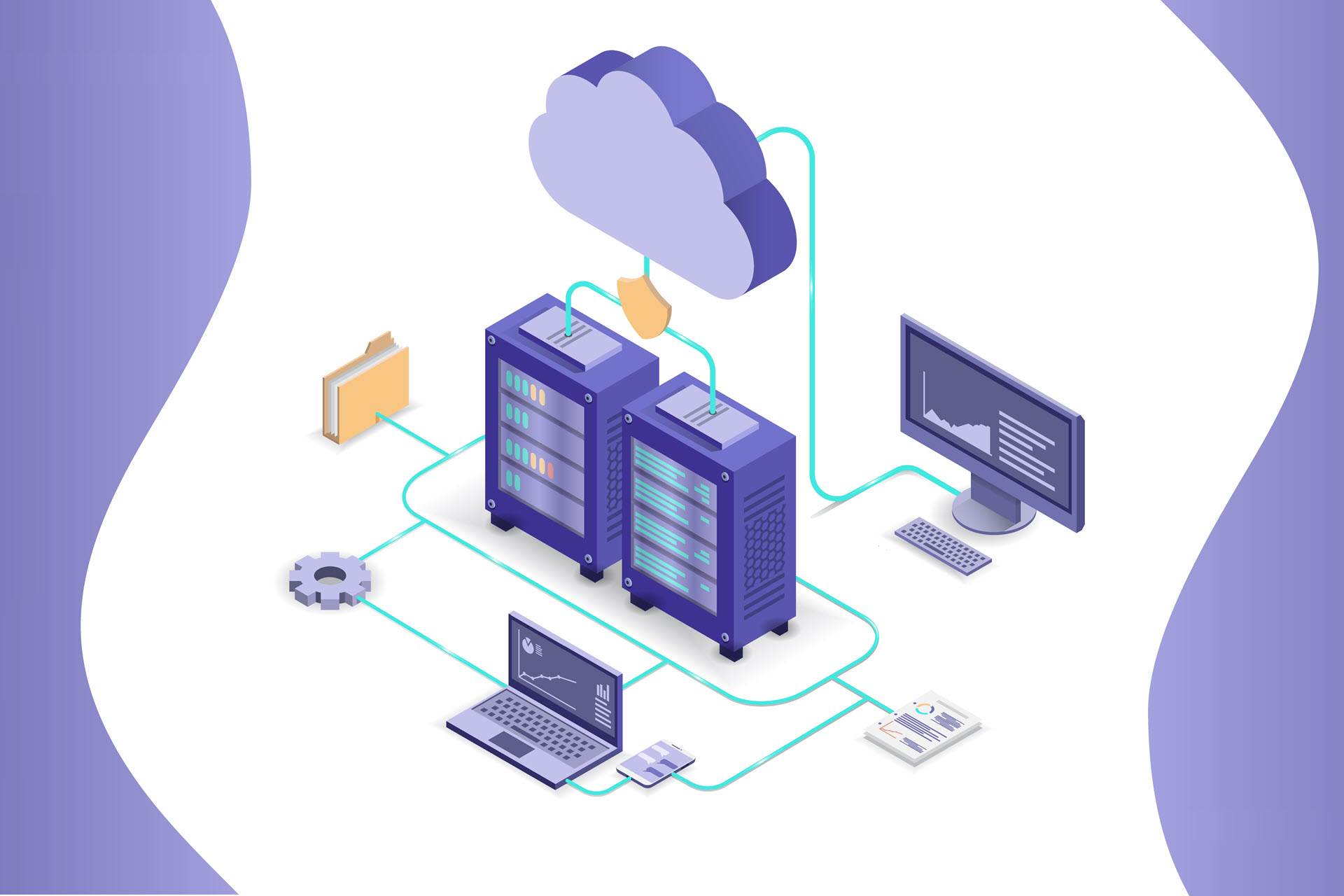Amazon Web Services (AWS) is one of the leading cloud providers used by businesses of all sizes. It is a global leader in cloud computing thanks to its robust infrastructure, extensive services, global reach, and scalability options.
However, AWS may not always be the right fit for your business. Luckily, many AWS alternatives offer different pricing models, infrastructure complexity, and performance metrics to address various requirements.
This article explores the top AWS alternatives. We will provide an overview of different cloud providers that offer something distinct, such as simpler management, better prices, or specialized services. By considering alternatives, businesses can find a provider that fits their personal requirements and long-term goals.

Reasons for Looking into AWS Alternatives
AWS is a well-known and robust cloud provider. However, exploring alternatives may be beneficial to address your business requirements. The cloud market is competitive, and the competition may offer additional advantages, such as:
- Cost efficiency. AWS can be pricey, especially when working with a complex infrastructure. Businesses requiring transparent costs and organizations with tight budgets can benefit from seeking alternatives to reduce IT costs.
- Ease of use. AWS offers extensive services, but the sheer number of options is overwhelming. Other platforms focus on providing user-friendly interfaces, simplified deployment, and easy-to-use dashboards. These features simplify cloud infrastructure management, allowing teams to focus on other tasks.
- Custom solutions. Businesses often don't require the vast range of services offered by AWS. Different providers often focus on custom solutions to address specific uses. The personalized approach is better for niche-specific businesses like healthcare, ecommerce, or AI.
- Customer support. AWS offers tech support, but it's often viewed as generic and difficult to navigate. Personalized or responsive support is a deciding factor for many businesses and is essential when troubleshooting issues.
- Performance and flexibility. Some AWS alternatives provide improved performance for specific workloads. Various providers focus on gaming, web hosting, or real-time analytics. Flexible billing options ensure businesses pay for what they need, reducing cloud waste.
- Scaling. AWS offers scalability, but scaling up or down at a given moment can be cumbersome. Many alternatives have faster and more intuitive scaling options, which help maintain an agile infrastructure and prevent over-provisioning.
With careful evaluation and research, you can find a cloud provider that fits the current business requirements and supports its long-term growth.
Best AWS Alternatives
Many strong competitors offer distinct advantages over AWS in terms of features, pricing, and management. The list below presents some of the best AWS alternatives that address various business needs.
1. phoenixNAP BMC
phoenixNAP is a global IaaS provider that offers various solutions, including bare metal cloud (BMC) servers. These servers are high-performance, on-demand, dedicated servers with cloud-like flexibility.
Businesses that require raw computing power without complexity should look no further, as BMC is an excellent AWS alternative that gives users more control over their infrastructure and resources.

Key features include:
- Flexibility billing models. Choose between hourly or monthly pricing models, with long-term reservations available to help minimize cloud computing costs.
- Global availability. On-demand deployment across global data center locations ensures optimal low-latency performance.
- Customizable infrastructure. There are many pre-configured instances suitable for different situations. Use our cloud pricing calculator to estimate the price for the computing solution you need.
- Developer-centric. BMC is built with developers in mind, including powerful APIs, CLI tools, and SDKs. Integrating it into an existing DevOps pipeline helps simplify infrastructure management and deployment.
- API-based automation. Streamline server provisioning, management, networking, and billing using a cloud API.
- IaC (Infrastructure as Code). Automate deployments with Infrastructure as Code (IaC) tools like Terraform, Ansible, or Pulumi.
The combination of flexibility, performance, and automation makes phoenixNAP's BMC a strong choice for businesses of all sizes. Companies requiring dedicated resources and cloud-level scalability can benefit from exploring phoenixNAP as an AWS alternative.
If analyzing different IaaS options, check out our guide on how to choose an IaaS provider and what to look for when weighing your options.
2. Akamai Technologies (Linode)
Akamai Technologies (Linode) is a cloud infrastructure provider with a simple, reliable, and developer-friendly approach. Businesses and developers choose Akamai Technologies due to their straightforward hosting and predictable pricing models.

The main features are:
- Global availability. Multiple deployment regions ensure low-latency performance.
- User-friendliness. APIs and dashboards are designed for ease of use, even for less experienced developers and teams.
- Developer-centric. Various development tools (CLI, API, and managed Kubernetes) help streamline deployment.
- 24/7 support. The provider has reliable support and a reputation for fast response times, which is essential for ensuring business continuity with minimal downtime.
- Straightforward pricing. Flat-rate pricing and no hidden fees simplify cost predictions and budget management.
Akamai with Linode combines affordability, simplicity, and strong customer support. It is an excellent AWS alternative for small to medium-sized businesses.
3. Microsoft Azure
Microsoft Azure is a fully-featured cloud platform with a wide array of services. It is known for seamless integration with Microsoft products, making it suitable for enterprises adapted to the Microsoft ecosystem.

Main features include:
- Microsoft integration. Azure seamlessly connects with existing Microsoft products and tools, such as Windows Server, Active Directory, and Office 365.
- Global presence. Microsoft has data centers across many regions, which ensures low latency worldwide.
- AI and analytics tools. AI, machine learning, and data analytics services are available to provide advanced business insights.
- Hybrid cloud options. The provider offers hybrid solutions that connect on-premises infrastructure and cloud environments.
- Security and compliance. Microsoft offers advanced security features and various compliance certifications. These features are essential for highly regulated industries.
Microsoft Azure offers a robust infrastructure and enterprise-level services. It is suitable for businesses requiring a scalable and secure AWS alternative.
4. DigitalOcean
DigitalOcean is a developer-friendly cloud provider known for its simplicity. Its straightforward solutions are an excellent choice for startups, small businesses, and individual developers.

Notable features include:
- Developer-friendliness. The provider offers developer tools to simplify cloud management and deployment, such as one-click deployments, APIs, and CLIs.
- Simple pricing models. DigitalOcean has transparent, flat-rate pricing. The simple pricing models without hidden costs simplify budgeting.
- Managed services. The provider offers managed services, such as Kubernetes, databases, and data storage solutions.
- Documentation. Extensive guides, tutorials, and a strong community help users resolve issues quickly.
DigitalOcean focuses on simplicity and affordability, resulting in an easy-to-use platform. Its straightforward solutions are suitable for startups, small businesses, and individual developers.
5. Google Cloud Platform (GCP)
Google Cloud Platform (GCP) is another AWS alternative that offers a wide range of cloud services. GCP's services focus on data analytics, machine learning, and AI. Businesses that rely on big data and cutting-edge technologies benefit from researching GCP further.

Its main features are:
- Advanced AI and ML. GCP provides tools and services for working with deep learning frameworks, including TensorFlow.
- Data analytics. Scalable data warehousing through BigQuery enables working with powerful analytics tools on large datasets.
- Global infrastructure. Google has a global presence. Their robust network ensures high performance and low latency, regardless of region.
- Security and compliance. Advanced security and compliance with global standards make it suitable for enterprises and highly regulated businesses.
- Flexible pricing. GCP offers pay-as-you-go pricing models, while long-term committed use provides significant savings.
GCP focuses on innovation and scalability. It's an excellent choice for businesses that require modern and AI-centric services.
6. IBM Cloud
IBM Cloud is a comprehensive suite of cloud services. It includes IaaS, PaaS, and SaaS solutions. Businesses that require high-performance computing (HPC), robust security, and integration with legacy systems benefit from exploring IBM Cloud as an AWS alternative.

It includes features such as:
- Hybrid cloud solutions. They support the integration of on-premises infrastructure with public and private clouds. This provider is suitable for businesses with complex IT infrastructure.
- Advanced security. Security measures include end-to-end encryption and compliance with industry standards (HIPAA, GDPR, etc.).
- AI and ML. IBM Watson performs advanced AI calculations, automates processes, and gives businesses valuable insights.
- Customization. The provider has flexible infrastructure options to address diverse workload requirements. It includes bare metal servers, VMs, containerized environments, and other solutions.
- Blockchain. IBM Cloud offers blockchain-as-a-service solutions to help businesses build and deploy blockchain apps.
IBM Cloud focuses on security, hybrid cloud solutions, and AI. It is a compelling choice for enterprises in highly regulated industries or those looking to integrate innovative technologies.
7. Oracle Cloud Infrastructure (OCI)
Oracle Cloud Infrastructure (OCI) is a platform with a strong focus on enterprises, especially those that utilize Oracle databases and applications. It provides an advanced set of cloud services capable of enterprise-level workloads.

Key features include:
- Enterprise performance. The infrastructure is optimized for HPC applications and specialized workloads.
- Databases. OCI contains specialized services for Oracle databases. It includes the Autonomous Database for automated scaling, patching, and tuning.
- Security and compliance. Compliance with industry standards and advanced security features ensures data protection for sensitive workloads.
- Hybrid cloud solutions. The provider supports integration between on-premises systems and cloud environments through Oracle Cloud@Customer.
- Cost management. Includes flexible billing options and cost-efficient solutions for enterprises.
OCI's focus on enterprises makes it an ideal choice for complex IT environments. It provides robust tools for improving database performance and is an ideal AWS alternative for Oracle-based environments.
8. Vultr
Vultr is another cloud infrastructure provider known for high-performance virtual servers. The AWS alternative aims for simplicity, affordability, and ease of use. Vultr focuses on developers, startups, and smaller businesses that require a reliable cloud hosting solution.

Its main features are:
- Affordable pricing. The platform has competitive pricing, pay-as-you-go models, and no hidden fees. It's ideal for businesses that are on a budget.
- High-performance computing. Vultr's virtual servers feature fast SSDs suitable for various workloads.
- One-click deployments. Launching and managing applications is simplified through pre-configured images that cover everyday use cases.
- API access. A robust API simplifies managing virtual instances, networking, and storage.
Vultr aims for simplicity, fast performance, and affordability. It's a great AWS alternative for developers and small businesses that require a simple cloud hosting solution.
Check out our in-depth article on Vultr alternatives as well.
9. Kamatera
Kamatera is a highly customizable cloud provider that allows businesses to build a cloud infrastructure for their specific needs. As an AWS alternative, Kamatera provides granular control over its cloud resources, aiming to deliver cost-efficient scalability.

Its main features include:
- Custom VMs. Kamatera is fully flexible when configuring VMs. Businesses can choose CPU, RAM, storage, and other parameters.
- Scalable infrastructure. Scaling resources up or down as required provides ultimate flexibility.
- 24/7 support. Expert assistance and support are available to ensure smooth operations.
- Flexible pricing. The provider's pricing model is flexible. There are no long-term commitments in their pay-as-you-go pricing model.
Kamatera primarily aims to offer custom cloud infrastructure, scalability, and cost efficiency. It's a strong alternative to AWS, especially for businesses that require custom solutions.
10. Hetzner Cloud
Hetzner Cloud is a Europe-based cloud provider known for efficient pricing and reliability. The AWS alternative offers various server instances suitable for small and medium-sized businesses, as well as developers seeking an affordable cloud solution.

The main benefits Hetzner Cloud offers include:
- Simple interface. Hetzner has an uncomplicated dashboard and API to simplify cloud management.
- Affordable pricing. Competitive and transparent pricing with no hidden fees makes Hetzner a good choice for budget-conscious businesses.
- Security and privacy. Hetzner complies with GDPR and other European-based regulations.
- European. Data centers are mostly European-based, ensuring low latency for nearby businesses.
Hetzner Cloud combines affordability and simplicity. As a European-based data center, it is a solid alternative to AWS for businesses located in Europe.
Note: Discover Hetzner alternatives.
The Perfect Cloud Provider is Out There
Choosing the right cloud provider affects an organization's performance, budget, and scalability. Although AWS is a powerful and feature-rich platform, it only fits some needs and requirements. Exploring AWS alternatives gives you access to diverse possibilities, and by evaluating these providers, you can identify a solution that aligns with your business requirements and long-term goals.



